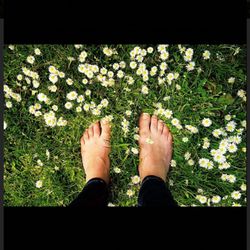

Sometimes I get this feeling that we all are caught up in this weird and twisted dream which almost resembles the setting of a post-apocalyptic movie or a dystopian novel. Deserted towns, empty highways, and a sense of gloom and fear looming everywhere. During the lockdown, we retreated to our homes, away from the madness of the modern world. We tried to make ourselves busy and occupied with many things. Yet, the pre-Covid era almost appears like a distant dream now.
If we look at the silver lining, we could say that the lockdown brought people together. It gave us a chance to reconnect with our friends, relatives, and acquaintances, who were otherwise busy with their hectic lives and work, through video calls and virtual meetups. Most importantly the lockdown literally brought together the people of a house within the four walls and got them to spend comparatively more time together. Usually, the children spend most of their time at the school/college and their parents, either one of them or both, are busy with their work. Maybe this was the only time when all these people, in a sense, literally got confined to a single space for a very long time. Maybe the lockdown fulfilled the children's wish to get more time and attention from their parents than their usual weekends or day outs together. And for the parents, lockdown ended their longing to spend enough time with their kids without the pressure from their busy schedules. Though all this progress appears positive, we must not forget that the silver lining does not come without the cloud.
Thus comes the million-dollar question, “Is home really the safe haven we always glorify it to be?” On a deeper level, the answer would be a big NO! Our homes are the source of some of our scariest insecurities and haunting memories. No matter how normal and cool a home looks from the outside, it holds some dark secrets, the ugliest fears, and experiences of its inhabitants. And this has serious effects on our adulting phase and mental health. Though we can deny this fact, it remains a disturbing and unfortunate reality. We usually bury all our insecurities in the deepest corners of our minds, yet the lockdown forced us to let down our guard and made us vulnerable. And especially for those children who are part of a dysfunctional family, the lockdown might have been a horrifying nightmare. The severity and intervals of things they had to experience once in a while or on a daily basis when they came home from hostels or schools, has intensified. Since the abuser and the abused are forced to confine themselves to the same place for long periods, the trauma of the past can couple with fears and insecurities more frequently, draining the victim's mental health and severely endangering physical health.
Even the people who are seemingly leading a ‘normal life’ are not exempted from this reality. Similar to the way our preferences and interests are moulded by our relationship with our parents, siblings and relatives, so are our insecurities and fears. They stem from our strained relationships with these same people. The lockdown made a comfortable environment for the insecurities to vent out by making us share more time in the place where our minds got bruised and with people with whom our relations are strained, i.e, in our homes. Our modern work environment and social media also contribute to this. Productivity anxiety is just the tip of such an iceberg of insecurities. We are constantly forced to feel embarrassed and guilty if we are not ‘productively’ utilising our time. The self-blame and guilt trips accompanied by anxiety is enough to shatter our peace of mind and deteriorate our mental health. The lockdown was particularly a time when we struggled to make ourselves productive as a reaction to the disillusionment that came with the unexpected turn of events following the outbreak of a pandemic. And it is true that our desperate attempts sometimes took a toll on our mental health. So it is high time we take care of our mental health and ourselves.
Self-realisation and self-love is the first step towards this process. To find our own insecurities and their sources, to be at peace with ourselves and accept our own flaws, are steps towards liberating ourselves. As it is rightly said, “to err is human”, let's spare ourselves from the guilt of mistakes and regrets. Don't be too hard on yourself. Let's reach out for help if needed. Though it is true that the lockdown was able to impact our mental health, let's rebuild ourselves to be strong and immune. Because we all deserve to be happy and have peace of mind.
























